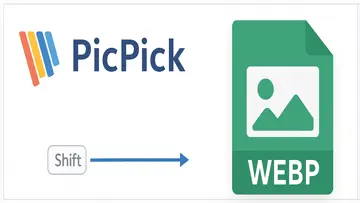Editor’s Review of Haskell FFI Bindings to syslog(3) by Peter Simons
The Haskell FFI (Foreign Function Interface) bindings to syslog(3) created by Peter Simons provide a powerful tool for developers looking to interface Haskell applications with system logging capabilities. This library leverages Haskell’s strengths while allowing access to the system-level logging mechanisms available on UNIX-like operating systems. Below, we will delve into the features, installation, usage, and benefits of this library, helping you understand its significance in Haskell programming.
Key Features
- Direct Access to System Logs: The bindings provide a straightforward way to send log messages directly to the system logger, utilizing established logging facilities.
- Flexible Logging Levels: Users can specify various logging levels such as debug, info, notice, warning, error, critical, alert, and emergency, allowing for fine-tuned control over message importance.
- Support for Various Identifiers: The library allows the use of different program identifiers (ident) when logging, making it clear which program the logs are originating from.
- Asynchronous vs. Synchronous Logging: Implements options for both synchronous and asynchronous logging, catering to different application needs and performance requirements.
- Haskell Type Safety: Maintains Haskell's type safety principles while interacting with system-level APIs, reducing the likelihood of runtime errors related to incorrect parameter types.
Installation
The installation of Haskell FFI bindings to syslog(3) is straightforward for users familiar with Haskell's package management ecosystem. Here’s how you can get started:
- Prerequisites: Ensure that you have GHC (Glasgow Haskell Compiler) installed along with Cabal (the build system for Haskell).
- Using Cabal:
You can add the library as a dependency in your project’s .cabal file or install it directly using Cabal with the following command:
cabal install syslog-ffi
Basic Usage
After installation, using the library is simple and intuitive. Here’s a brief code snippet that demonstrates basic usage:
import System.Log.Syslog
main :: IO ()
main = do
openlog "MyHaskellApp" [LogPID] LOG_USER
syslog LOG_INFO "This is an information message."
syslog LOG_ERR "This is an error message."
closelog
This example showcases how easily developers can open a connection to the syslog service, send messages at different severity levels, and close the connection afterward. The functions provided by this library are well-documented and conducive to efficient programming.
Error Handling
Error handling is crucial in any software component. The Haskell FFI bindings to syslog(3) liberate users from tedious error-checking by offering exception handling through standard Haskell practices. Common logging-related errors, such as failure to open a connection or invalid parameters passed to logging functions, are well-managed within this framework.
Performance Considerations
The performance of any logging utility can significantly impact application efficiency. This library is designed with performance in mind. It utilizes appropriate buffering and asynchronous techniques where needed, aiming not to block your application during high-volume logging situations.
Documentation and Support
An essential aspect of any software library is the quality of documentation. Peter Simons has provided thorough documentation for the bindings, which covers installation, configuration options, function usage examples, and more. This comprehensive guide ensures that developers of all skill levels can efficiently integrate logging functionality into their applications.
Use Cases
- Web Applications: Incorporating frequent log entries for tracking user actions and system events.
- Server-Side Programs: Maintaining operational logs for monitoring server health and activity.
- Background Processes: Keeping track of job completion states or failures in daemons and long-running tasks.
Sustainability and Community Contributions
The Haskell community actively contributes to libraries like this one. Regular updates ensure compatibility with new versions of GHC and evolving best practices in Haskell programming. Users can also participate by reporting issues or contributing enhancements through pull requests on platforms like GitHub.
The Haskell FFI bindings to syslog(3) by Peter Simons emerge as a valuable resource for developers needing robust logging functionality in their applications. By leveraging system-level capabilities with the elegance of Haskell’s type system and functional programming principles, this library strikes an excellent balance between ease-of-use and power. Whether building desktop applications or large-scale server environments, utilizing these bindings ensures log messages are handled efficiently in accordance with modern development practices.
概述
Haskell FFI bindings to syslog(3) 是在由Peter Simons开发类别 Development Open Source 软件。
最新版本是 Haskell FFI bindings to syslog(3) 的目前未知。 它最初被添加到我们的数据库 2010/06/06 上。
Haskell FFI bindings to syslog(3) 在下列操作系统上运行: Windows。
Haskell FFI bindings to syslog(3) 已不被评为由我们用户尚未。
评测
|
|
WPS Office
WPS Office:满足您所有需求的多功能办公套件 |
|
|
Adobe Photoshop
终极照片编辑软件:Adobe Photoshop 评论 |
|
|
Adobe Flash Player NPAPI
Adobe Flash Player NPAPI:多媒体网页浏览的必备软件 |
|
|
Microsoft Visual Studio 2010 Tools for Office Runtime Language Pack
使用语言包增强 Microsoft Visual Studio 的功能 |
|
|
Microsoft Visual Studio 2010 Tools for Office Runtime
使用 Microsoft Visual Studio 2010 运行时提升您的办公工具 |
|
|
AIMP
用AIMP增强您的音乐体验! |
|
|
UpdateStar Premium Edition
UpdateStar Premium Edition:管理軟體更新的實用工具 UpdateStar Premium Edition 是一種軟體管理工具,旨在通過確保您的程式是最新的,説明您的 PC 保持最佳狀態。它可以處理從掃描過時軟體到提供個人化推薦,甚至備份您的配置以便在需要時恢復設置的所有事情。仔細查看自動更新功能 : 此功能會自動掃描您的電腦以查找過時的程式,只需按下即可説明您更新它們。無需再尋找每個應用程式的最新版本。軟體資料庫: UpdateStar … |
|
|
Microsoft Visual C++ 2015 Redistributable Package
Microsoft Visual C++ 2015 Redistributable Package 是 Microsoft 创建的軟體元件。它為使用者提供了運行使用 Visual Studio 2015 創建的應用程式所需的運行時元件。此可再發行元件組件組件旨在使開發人員能夠更輕鬆地在系統上部署其應用程式,而不必擔心是否已安裝所需的運行時元件。該包包括 Microsoft 基礎類 (MFC)、Visual C++ CRT 和標準 C++ 等庫。如果沒有這些庫,使用 … |
|
|
Microsoft Edge
發現增強的 Microsoft Edge 瀏覽器:您的終極 Web 導航工具 Microsoft Edge 仍然是頂級 Web 瀏覽器,在速度、安全性和與 Microsoft 生態系統的無縫集成之間實現了最佳平衡。它在 Chromium 引擎上重建,提供令人印象深刻的性能,同時保持時尚和使用者友好的介面。 Microsoft Edge 的主要功能和優勢 高速性能: 借助基於 Chromium 的引擎,體驗快速的網頁載入時間,使流覽更流暢、更高效。 增強的安全性:使用 … |
|
|
Google Chrome
Google Chrome評論:快速、靈活且安全的網路瀏覽器 Google Chrome 是領先的網路瀏覽器之一,以其速度、簡單性和豐富的功能集而聞名。Chrome 由Google開發,利用 Webkit(及其分支 Blink)等開源技術來提供高性能的 HTML 渲染,確保跨設備的無縫瀏覽體驗。 Chrome 的創新使用者介面採用簡約設計,將標籤頁放置在窗口頂部,以最大限度地利用 Web 內容的螢幕空間。集成的多功能框結合了位址和搜索功能,可智慧區分 URL … |
|
|
Microsoft Visual C++ 2010 Redistributable
評論:Microsoft Visual C++ 2010 Redistributable by Microsoft Microsoft Visual C++ 2010 Redistributable 是由 Microsoft 開發的軟體應用程式,它為使用 Microsoft Visual C++ 2010 構建的程式提供運行時元件。在未安裝 Visual C++ 2010 的電腦上執行使用此版本的 Visual … |
|
|
Microsoft Update Health Tools
Microsoft Update Health Tools 是由 Microsoft Corporation 開發的軟體應用程式,可説明使用者解決和修復與設備上的 Windows Update 相關的問題。作為 Microsoft 對改善 Windows 更新體驗的持續承諾的一部分,更新運行狀況工具旨在簡化診斷和解決更新相關問題的過程。 Microsoft 更新運行狀況工具的一個關鍵功能是它能夠檢測可能阻止 Windows … |





